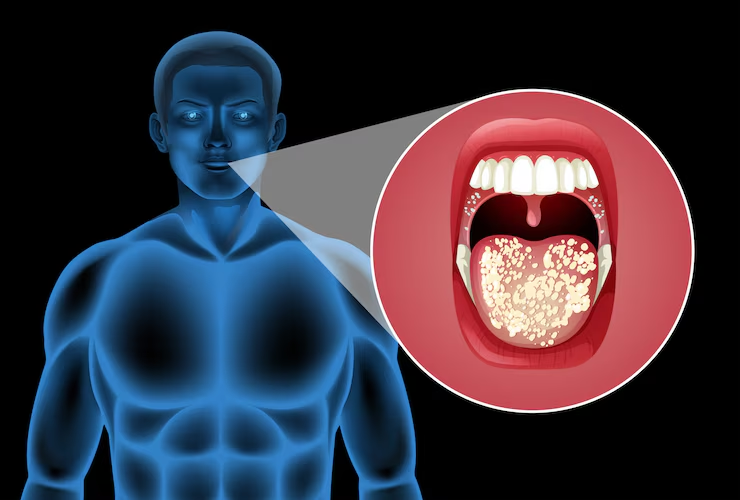"Excellent service at the hospital & Dr Manish Prakash is an excellent ENT Surgeon in Gurgaon, he is treats patients with lots of care . the staff is very cooperative & polite."

Overview
Oral cavity cancer is a type of head and neck cancer that develops in the mouth region, including the lips, tongue, floor of the mouth, cheeks, gums, hard palate, and the area behind the wisdom teeth. It is among the most common cancers in India, often linked to tobacco and betel nut use. ENT (Ear, Nose, and Throat) specialists play a key role in the early detection, diagnosis, surgical treatment, and rehabilitation of patients with oral cancers.
Our ENT team offers comprehensive and patient-focused care for oral cavity cancer using state-of-the-art diagnostic tools and surgical expertise. Timely intervention by an experienced ENT surgeon can significantly improve both survival and quality of life.
What is Oral Cavity Cancer?
Oral cavity cancer typically begins in the squamous cells that line the inner mouth. These cancers can grow locally and also spread to nearby lymph nodes. Early detection is crucial, as the mouth is easily accessible for examination, allowing ENT specialists to identify abnormal lesions quickly.
Common Symptoms
Persistent symptoms in the mouth should never be ignored, especially if they last more than two weeks. Signs of oral cavity cancer include:
- A non-healing sore in the mouth or on the lip
- A lump or thickening in the cheek or jaw
- White or red patches inside the mouth (leukoplakia or erythroplakia)
- Difficulty chewing or swallowing
- Numbness or pain in the mouth or tongue
- V Loose teeth or jaw pain
- Swelling in the neck (lymph node involvement)
- Unexplained weight loss
- Change in speech or difficulty moving the jaw or tongue
ENT specialists are often the first to evaluate these symptoms through a detailed oral examination and diagnostic procedures.
Causes and Risk Factors
Several lifestyle and environmental factors contribute to oral cavity cancer:
- Tobacco Use: Smoking cigarettes, cigars, or chewing tobacco and gutka are major risk factors.
- Alcohol Consumption: When combined with tobacco, the risk increases significantly.
- HPV Infection: Human Papillomavirus (especially type 16) is linked to certain tongue and oropharyngeal cancers.
- Poor Oral Hygiene: Chronic irritation from broken teeth or ill-fitting dentures.
- Sun Exposure: Increases the risk of lip cancer.
- Weakened Immune System: Can also increase vulnerability to cancerous changes.
Diagnosis by ENT Specialist
ENT specialists are trained to detect early signs of cancer in the oral cavity and surrounding areas. Diagnostic steps include:
- Oral Examination: Visual and physical inspection of the mouth, tongue, and throat.
- Biopsy: Collection of tissue from suspicious lesions for histopathological analysis.
- Imaging Tests: CT scan, MRI, and PET scan to determine the extent of the disease.
- Fine Needle Aspiration Cytology (FNAC): For enlarged lymph nodes in the neck.
- HPV Testing: In select cases.
Early diagnosis not only improves survival chances but also reduces the need for extensive surgical procedures.
Treatment Options
Treatment for oral cavity cancer depends on the location, size, stage, and overall health of the patient. ENT specialists play a central role, especially in surgical intervention and postoperative care
1. Surgery
Surgery is the primary mode of treatment for most oral cancers. Procedures may include:
- Wide Local Excision: Removal of the tumor with a margin of healthy tissue.
- Glossectomy: Partial or total removal of the tongue in tongue cancers.
- Mandibulectomy: Removal of part of the jawbone if the tumor has invaded it.
- Neck Dissection: Removal of lymph nodes to prevent or treat cancer spread.
ENT surgeons are skilled in performing these surgeries with precision while minimizing impact on appearance and function.
2. Reconstructive Surgery
After tumor removal, reconstructive procedures may be needed to restore function and appearance:
- Free flap reconstruction (tissue transfer)
- Jaw reconstruction
- Dental rehabilitation
3. Radiation Therapy
May be used post-surgery to destroy remaining cancer cells or as the primary treatment in patients unfit for surgery.
Chemotherapy
Often combined with radiation in advanced cases or recurrent disease. ENT specialists coordinate with oncologists to monitor and manage side effects.
Rehabilitation and Follow-Up
Post-treatment rehabilitation is crucial for restoring speech, chewing, and swallowing abilities. Our ENT team works closely with:
- Speech and Swallow Therapists
- Dental and Prosthetic Experts
- Dietitians for Nutritional Support
- Psychological Counselors
Regular follow-ups are essential to monitor for recurrence and manage any functional impairments.
Why Choose Our ENT Clinic for Oral Cancer Care?
- Experienced ENT surgeons with expertise in oral and head-neck oncology
- Advanced diagnostic tools for accurate detection and staging
- Personalized surgical and non-surgical treatment plans
- Comprehensive support for speech, nutrition, and emotional recovery
- Multidisciplinary team approach involving oncologists, radiologists, and therapists
Prognosis
When detected early, oral cavity cancer has a good survival rate. Delayed diagnosis or extensive disease reduces the survival rate, but advancements in surgical and supportive care have improved outcomes even in later stages. Timely intervention by a skilled ENT specialist like Dr. Manish Prakash ensures better chances of cure, preservation of speech and function, and an improved quality of life.
Book a Consultation Today
If you have persistent mouth sores, lumps, or difficulty swallowing, don’t wait too long. Oral cavity cancer is highly treatable when caught early. Our expert ENT specialists are here to provide you with timely diagnosis, expert treatment, and holistic care. Schedule your appointment today for comprehensive evaluation and guidance.

